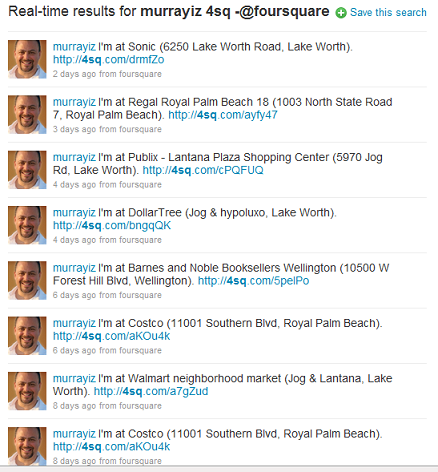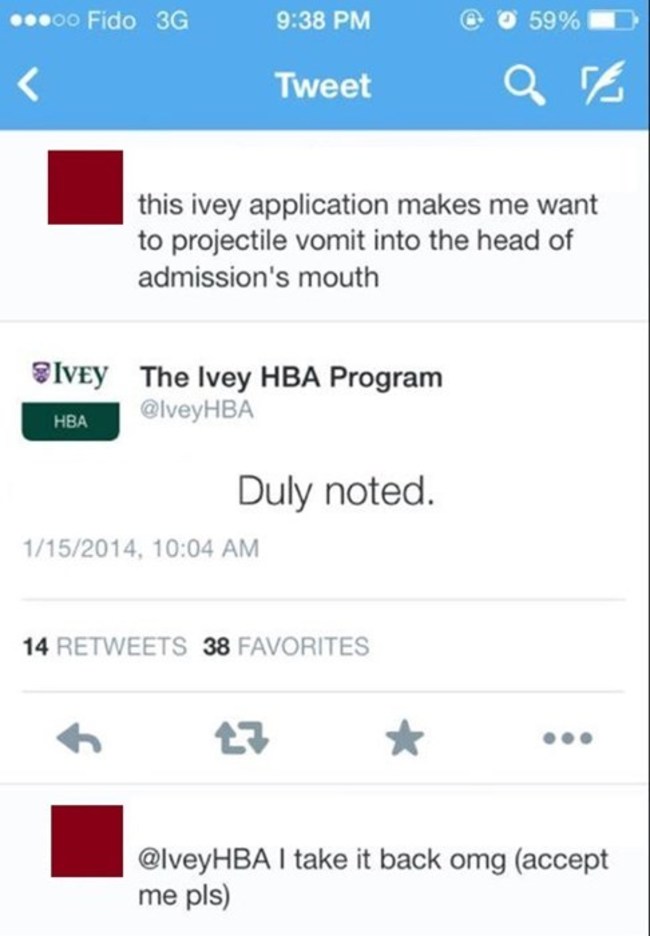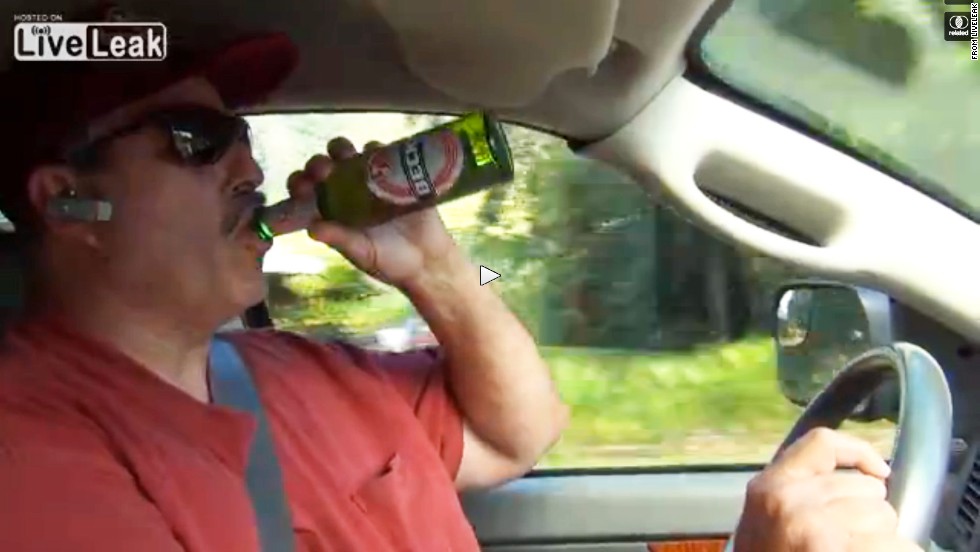The 8 Types Of People Who Share Too Much Information On Social Media
Sometimes, sharing is not caring.
1. The ones that likes to share photos and posts that are both insensitive and graphic
Why you shouldn't do it: Think before you post and share. Check your sources on the Internet to find out if something is true before you post. Besides that, always ask yourself this question, "How would you feel if this was a picture of someone you know was being spread on social media?"
What you should do: Encourage people nicely to refrain from sharing graphic images on Facebook. If they have already shared them, message them privately to take it down to stop spreading the images. You can also report the original post for displaying graphic images if they still do not comply.
2. The ones who MUST let the world know where they are: the restaurant, the airport, at the office, in the park...
Why you shouldn't do it: "The danger is publicly telling people where you are. This is because it leaves one place you're definitely not... home. So here we are; on one end we're leaving lights on when we're going on a holiday, and on the other we're telling everybody on the Internet we're not home. It gets even worse if you have 'friends' who want to colonize your house. That means they have to enter your address, to tell everyone where they are. Your address.. on the Internet.. Now you know what to do when people reach for their phone as soon as they enter your home. That's right, slap them across the face."
What you should do: Always review your privacy settings before you post. Refrain from "checking in" to your home as this reveals your address online. Limit them as much as possible to protect your privacy and personal safety. Never ever post that you are home alone.
3. The ones who are unaware that the things they say online may haunt them in the future
Why you shouldn't do it: Anything posted online can leak. So generally it is a good policy to conduct yourself on social media just as you would in a similar group and context in the real world.
Treading carefully online should start even before you step foot on campus. According to a 2013 survey by Kaplan Test Prep, more college admissions officers than ever are conducting Google searches of applicants (29 percent) or are visiting the applicants' social networking profiles (31 percent).
What you should do: Do a simple search on yourself on Google. Look at some of the results and check whether this is the online persona you want. If there are not so flattering things, it's time to review your privacy settings and be careful of the things you post online.
4. The ones who likes to flaunt their wealth and financial details for the world to see
Why you shouldn't do it: According to the U.S. Bureau of Justice Statistics, an estimated 16.6 million Americans were victims of identity theft in 2012 alone. Financial losses for these victims added up to $24.7 billion.
For identity thieves, social media is a hunting ground for targets' personal information.
Becky Frost, consumer education manager for Experian's ProtectMyID service, says even something as seemingly harmless as your dog's name or your mother's maiden name can compromise your bank or credit card accounts. How? Those names might be part of your bank account's security questions or passwords.
What you should do: Never post your financial details on social media. If you have to, share it via personal message and make sure that the other party deletes the information after.
Note: smh = shake my head.
5. The disgruntled employee who always complains about their job
Why you shouldn't do it: When you're angry at your boss, it might be tempting to pull out your phone and shoot off a blistering Facebook update. But doing so could jeopardize your career, human resources consultant Brenda Vander Meulen says.
What you should do: "Never say anything negative about a current or former employer on your social media pages. Employers will reasonably assume that if you trash-talk your current or former employers, they will be the next ones to be trashed," Vander Meulen says. It also might be tempting to post pictures of your night out. But use common sense, Vander Meulen says. "Don't talk about how drunk or high you got last weekend. Don't talk about how you faked being sick so you could take an extended weekend with your friends," she says.
6. The new parents that post too many photos and details of their children
Stories of oversharing gone wrong have been rampant in the news, with one of the most extreme examples including a phenomenon called 'digital kidnapping' reported on earlier this year. Parents were shocked to learn that strangers were 'stealing' their kids' online photos and re-sharing them as if the children were their own. In other cases, children's photos have become the target of cruel jokes and cyber bullying. Among the most notorious cases in recent years was that of a Facebook group that made fun of 'ugly' babies.
dailymail.co.ukWhy you shouldn't do it: While posting an image of your child smiling into the camera covered in food may seem like a playful and cute move to you - it could be dangerous for your child in the long run.
When it comes to uploading baby photos on social media, some feel like the more comments and likes they get the better, but who is really looking at your photos and how far do they reach on the net?
Ms Kurtini, who is the co-founder of Tinybeans, a private social media network for families said that although parents are worried about what the dangers of sharing on social media are, they choose to ignore the warnings.
Ms Kurtini believes the message has yet to sink in with parents who continually post inappropriate snaps on Instagram, Twitter and Facebook and even tag their location in the photos. Ms Kurtini believes enabling the geographical location to appear on the picture is the most worrying trend of them all. 'The scary thing is that they don’t know it’s happening,' she said. 'I know my privacy setting so I know that level of comfort with what I'm going to share but it looks like people don't. Especially on photo-sharing site Instagram, doting parents are sometimes inadvertently declaring their whereabouts and over time it can become clear exactly where they live.
What you should do: Make sure that your privacy settings are limited to only friends and people you trust. Turn off location settings on your apps so that no stranger is able to locate your surroundings. Also, do be careful of what kind of photos you upload.
7. The one that posts something that may land them in trouble with the law
The man, Richard Godbehere, posted the clip in February under the title "Let's Go Driving, Drinking!" to LiveLeak, a video-sharing site where users can vote on and donate to videos they like. Even so, he appeared surprised when police showed up at his house in Kapa'a, Hawaii, to arrest him on charges of consuming alcohol while operating a vehicle and driving without a license. "It's unbelievable," Godbehere told CNN. He says the video was meant as a parody. "There was no beer in that bottle." Godbehere is due in court in June, and police in Kaua'i told CNN the case will come down to whether a judge or jury believes him. "Our traffic laws are in place for a reason, and Mr. Godbehere's blatant disregard for those laws is the type of behavior that won't be tolerated," said Kaua'i Police Chief Darryl Perry in a statement.
cnn.comWhy you shouldn't do it: Anything you do on Facebook can and may be used against you in a court of law. Lawyers absolutely love Facebook because it helps greatly in establishing a person's character and where and when something took place. Facebook does a lot of legwork that a private investigator would normally have to do, such as learning who a person associates with (i.e. who their friends are).
What you should do: Avoid posting while you're angry or drunk. If you're tagged in a picture that might be considered inappropriate, you can "untag" yourself so that the picture is not associated with your profile.
Remember that even if you removed a posting after it appeared, the post might have still been caught in a screenshot or sent in an email notification. There's no guaranteed take-backs on Facebook, so always think before you post.
8. The ones that display all their hobbies and interests which may be questionable
Why you shouldn't do it: You leave yourself wide open to being targeted or being caught participating in questionable beliefs or practices if you are not aware of what you are allowing to be shown.
You are of course entitled to be into whatever you want to be into, but being aware that anyone with Graph Search can search for anything that you have allowed to be public is the first step to protecting your personal reputation and ‘brand’.
What you should do: Much of it is common sense ie check privacy settings regularly. Just as you would keep searching and refining until your profile showed how you wanted it to – reverse the process and keep eliminating data until you show as little as you want to.
Your social media posts may haunt you back some day. Learn the repercussions of sharing too much info and why you shouldn't be posting more than you should, here
It may all be fun and games when you hit that 'share' button on social media. But remember, what goes online stays online so be careful what you post!







